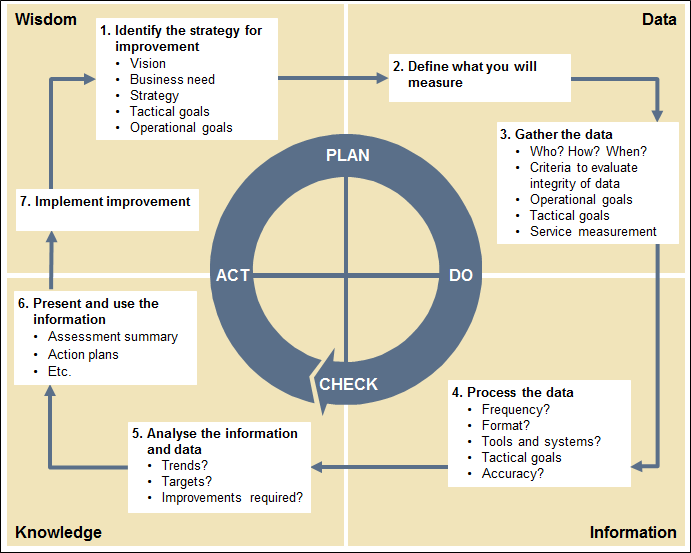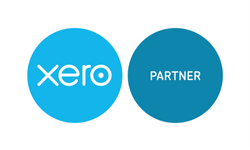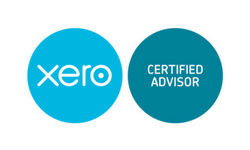
Aqua Digital Bookkeeping – Service Improvement
Although predominantly directed towards the IT Service Delivery industry, the ITIL methodologies and mindset can be applied to any business as ITIL defines common concepts and integrates best practice that evolves to meet the needs of your business. It is designed to be flexible and scalable, delivering a successful service to your customers, therefore improving relationships and customer satisfaction.
By adopting trusted standards that are proven to work, you can deliver your services consistently, efficiently and effectively. Equally, reviewing and optimising your processes can offer significant opportunities for simplification and streamlining which reduce overheads and improves performance.
There are many different facets to ITIL, however the key methodologies which I believe can help your business are detailed below:
Service Operation
The objectives of Service Operation are to coordinate and perform activities and processes needed to deliver a service at agreed levels for both your customers and your own business.
This is the most crucial stage as if daily operations are not conducted, controlled or managed appropriately the well-planned and well-implemented processes will be useless.
Successful management of Service Operation includes embracing key strategies to make your business more robust and responsive. The disciplines I can help with are:
- Incident Management – manage unplanned interruptions or reductions in the quality of your ability to deliver your service. Any defect in processes which hinder your service can be viewed as an ‘incident’ and this can impact heavily on your business if left to go unmanaged.
- Problem Management – diagnose the root cause of incidents and issues, determine and implement a solution. It is essential to understand the underlying reasons behind pain points in your business and this discipline is designed to eliminate systematic issues which have a negative impact. Defining the root cause of any situation allows you to implement preventative actions in order to ensure issues do not reoccur.
- Service Level Management – this element provides a framework to define and agree the services you are delivering to your customer. By gathering historical performance data, you can work with your customers to establish clear goals and responsibilities. Measuring key performance data will allow you to analyse service performance and alert you to any adverse trends or problems.
Service Quality
ITIL includes business relationship and management processes that provide visibility for your customer experience, and the ability to better manage customer expectations by ensuring that your services are highly available and specific to them.
I firmly believe that the quality of a business lies in their ability to react when things go wrong, rather than when things are in a stable state. In the main, when problems arise, what customers want to see is that you are in control of the situation.
Having processes in place that allow you to manage your systems and workflows, monitor and resolve issues and prevent future incidents from occurring shows you are proactively able to respond to your customer.
Times change fast today, and businesses must be agile to stay ahead of the competition. Robust processes mean you are able to focus on the end result, rather than on how you are going to get there, which provides a quality service and ultimately builds customer confidence.
Continuous Service Improvement
The purpose of Continuous Service Improvement is to identify improvement opportunities in your business. It is essential that you understand what to measure, why it is being measured and what the successful result should be. Your business will suffer if services and processes are not implemented, managed and supported according to clearly defined goals, objectives and appropriate measurements that lead to actionable improvements.
CSI provides instrumental guidance on the creation and maintenance of value for customers through the better strategy, design, transitions and operation of deliverable services.
The primary focus of CSI is to continually align, and realign, the delivery of your services to your customer within the changing requirements of your own business. The key objectives are:
- review, analyse, prioritise and make suggestions on improvements in each area of your business
- review and analyse the level of achievement of a service
- identify and implement particular activities to improve the quality of a service and increase efficiency and effectiveness by enabling streamlined processes and eradicating waste
- identify and understand challenges, share learning objectives and opportunities
Benefits of Adopting ITIL Methodologies
Selecting and adopting the ITIL methodologies will help your business to deliver significant benefits:
- ITIL is proven and used worldwide – it defines common concepts and terms within an integrated set of best practices that evolve to meet your business needs in a cycle of continual improvement. As ITIL is flexible and scalable, organisations of all shapes and sizes can implement parts of ITIL to deliver business benefits in stages and gives confidence for action
- Improved customer satisfaction and relationships – ITIL is designed to help everyone in your business focus their attention on the needs of the customers and user experience rather than focussing too much on the technology issues. Increasing customer satisfaction leads to a better and trusted relationship
- Better reliability and quality of service – By adopting standards that are proven to work, your business can more easily deliver services consistently to the agreed expectation of your customer
- Optimisation of service delivery – ITIL offers significant opportunities for simplification and standardisation within your business. It provides processes and models to help you work with all stakeholders involved in your business and compliments sound business decisions on investment opportunities, cost optimisation, management of risks and priorities for improvement
- Competitive advantage through value creation and agile change – By embracing ITIL service lifecycle practices, your business can focus on delivering value to the customer and allows you to quickly adapt to change when necessary. Deploying an ITIL mindset over all areas of your business promotes successful business transformation and growth with an increased competitive advantage
In a nutshell, putting ITIL Service Delivery processes into practice will help your business become more mature and be proactive, rather than reactive.
Continuous Service Improvement Lifecyle

Aqua Digital Bookkeeping – Keeping Your Business Flowing



